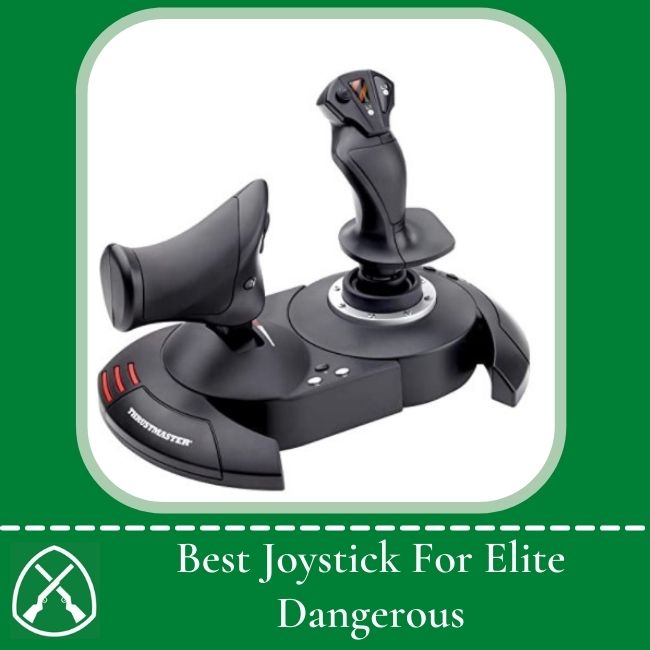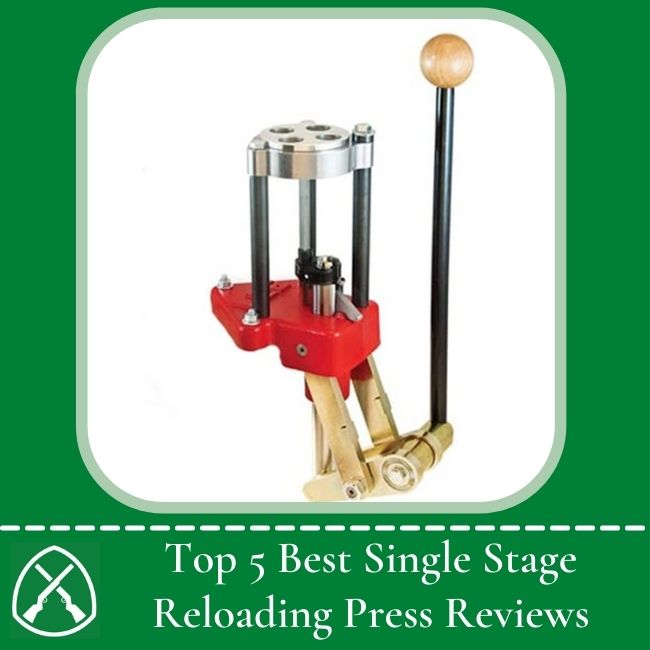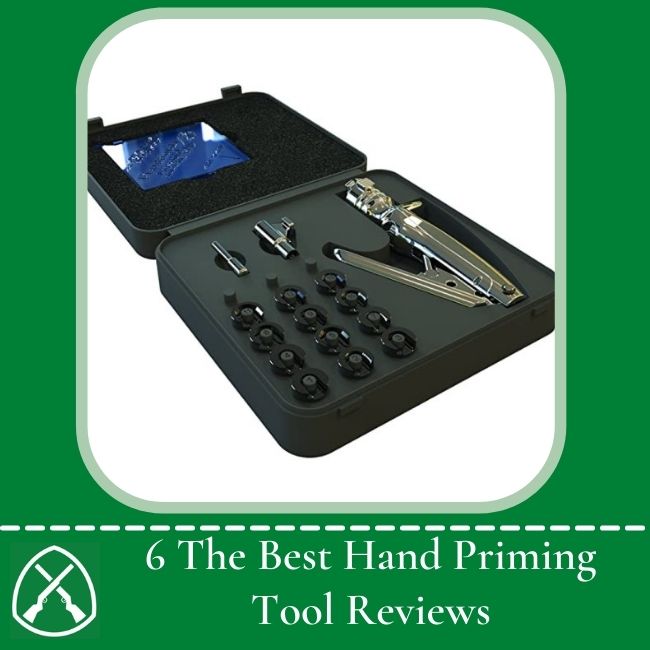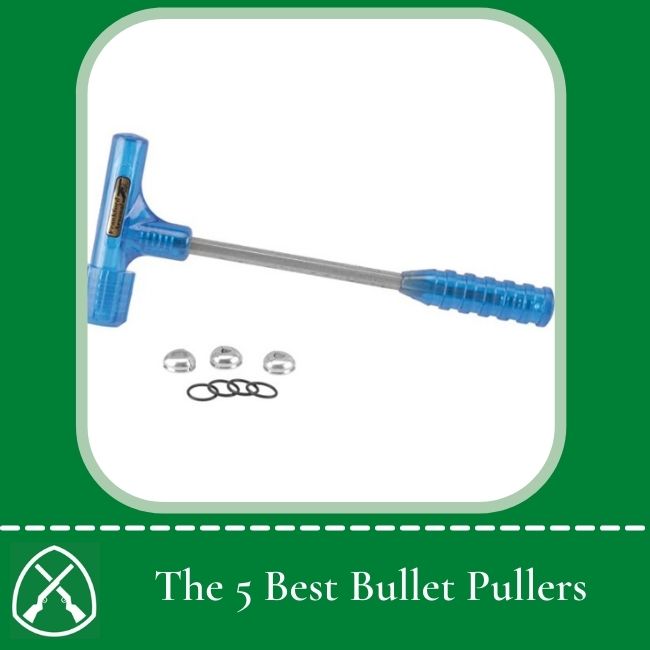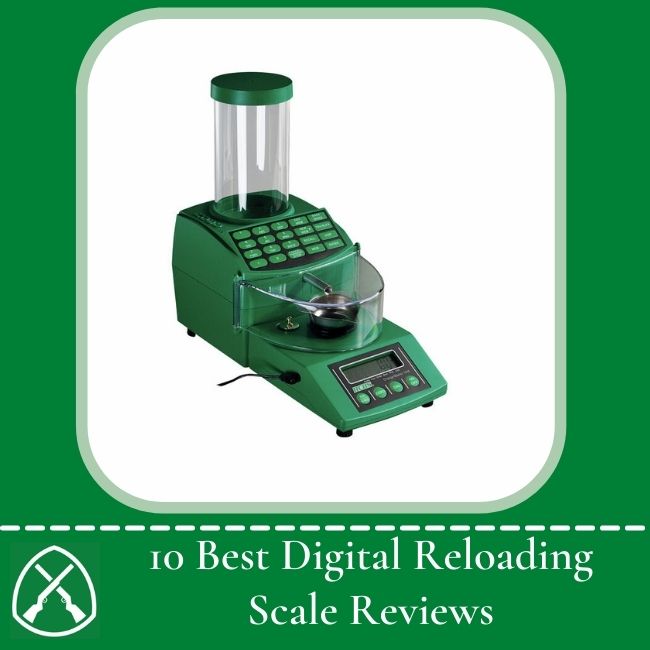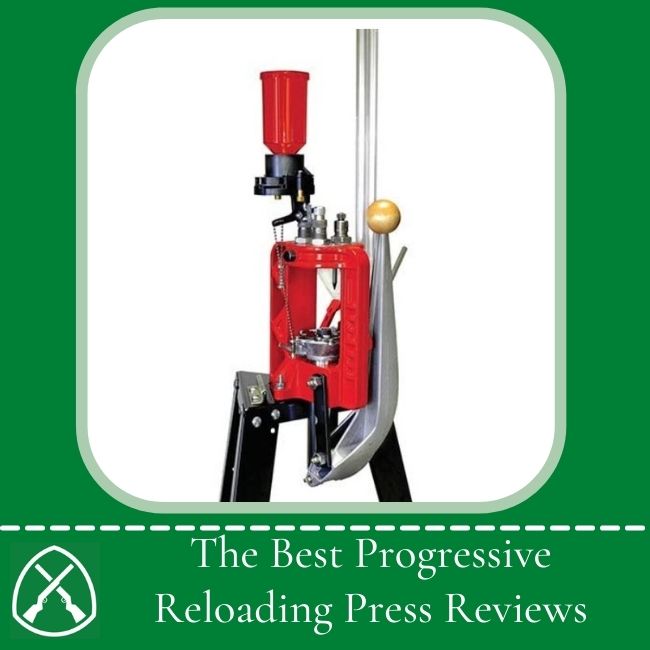If you’re a novice gun owner, and you’re preparing your first round or an experienced shooter on the field, bullet grain could be a new aspect regarding ammunition for you. Knowing about bullet grains or the different bullet weights will provide you with an advantage in shooting. Let’s look at what a bullet grain actually is.
What does “Bullet Grain” mean?
One grain (“gr” is short for grain)) is a fundamental weight measurement. One grain equals 1/7 of a pound, or 1/437.5th of an 1 ounce.
For those who are like me, and you have difficulty imagining how much things weight, here are some typical household items that I use to help me get things in perspective:
Is Bigger Better?
Below, you’ll find the advantages and disadvantages of the heavier bullets and one that is lighter. Both have pros and cons. However, we’ll leave it up to you to choose.
Pros of a lighter bullet
Accuracy
A lighter bullet you can achieve greater general speed. This results in that you will have a more straight course.
These lighter rounds are great for long-distance shooting as they can give you smaller groups downrange. The cartridges with lower grain weight are excellent for hunting when you intend to make longer shots of small game species.
One thing to look out for is the wind. Because of their smaller bullet weight, these bullets could be quickly blown off course.
Recoil
It is possible to connect lighter bullets and less recoil, but this might or not be true depending on the recoil control your gun has.
However, theoretically, lighter bullet should be able to have greater recoil due to Newton’s original “equal and opposite reaction” theory. We’ve already discussed lighter bullet being more energetic and that energy has to go to a place.
So, instead of arguing the differences in recoil between light and heavy bullet, let’s leave it at this: shooting lighter bullet typically feel “snappier,” while firing heavy bullets feel more like an “roll” as well as a “pull.”
Terminal Ballistics
Although you’ll experience faster speed from lighter bullet but you’ll sacrifice some energy when you talk about the term “terminal ballistics”.
A smaller mass means that the shot isn’t likely to travel much further into the target area as a larger round would. That’s why you’ll need to aim at targets that aren’t living or game animals to make things more humane.
To recap, lighter grain bullets offer the benefit in speed and distance, making them the ideal choice for long-range shooting and competition. However, they have a faster recoil, and lower penetration when they hit your intended target.
Cons of a lighter bullet
Since these bullets are light, they are susceptible to wind being their foe. A wind gust could cause these bullets to drift off the course quickly.
A smaller mass means less damage to the victim.
Pros of a heavy bullet
Accuracy
Bullet weight helps to achieve greater protection against the wind’s strong winds. If you can get within 100 yards of the animal, you’ll likely be able to get a great trophy to put on the wall.
In reality, if you’re going to the range to enjoy some shooting, the bullet weight shouldn’t be a huge factor. It’s really based on the amount you’re able to afford and also what weapon suits you most.
Recoil
Recoil calculation is using several variables, such as the bullet weight, the speed, propellant type and the design of the weapon the bullet grain you select will affect the amount your shots kick.
The way that shooters feel the recoil is completely subjective, therefore, even though a more powerful cartridge may technically cause recoil, it depends on what you personally feel about the impact.
The advantage of heavier rounds, which will definitely lessen recoil and weight is the use of subsonic ammunition with a great suppressor. Subsonics are generally heavier and with the help of suppressors, create an amount that is small enough for the energy that it can be absorbed efficiently.
Terminal Ballistics
The heavier rounds shine. If you’re looking for effectiveness for self-defense situations, or more extensive combat or game, the higher-grain weight cartridges will do the trick.
The bigger ammunition, the greater the expansion and penetration when you hit. This means faster and more humane deaths.
Cons of a heavy bullet
Because of these heavier bullets, they will not travel the distance you are trying to achieve.
They are believed to cause more recoil, however, it is a matter of the individual’s preference.
When to pick the Heavier Bullet or the Lighter Bullet
The requirements you have for your shooting will vary based on the goal of your shooting.
If you’re hunting for deer, taking part in shooting sports that target and defending yourself against the wrath of a criminal, or simply shooting at long distances for pleasure at the distance, the ammo you decide to use may vary.
Hunting
The heavier bullets are the best choice for hunting. The heavier bullets will have better growth and penetration when it hits an active target. This is how this kills your target quicker, in a humane manner. It’s true that choosing the proper bullet weight isn’t the only thing to be considered when selecting your bullets for your next hunt.
For instance, you may prefer a lighter jacketed hollow point rounds (HP bullet) over a full-sized heavy steel jacket (FMJ bullet). This is due to the fact that hollow point bullets are more compact. Hollow point ball expands on the impact but stays within the goal. You may also wish to purchase some special ROUNDS to hunt specific animals.
Self-Defense
If you’re thinking of self-defense, you might want to go with bullets with a heavier grain weight. A greater bullet weight improves “terminal ballistics” or the method by which the bullet can transfer energy into the targets.
In essence, a more powerful bullet is better to defend yourself since it is more powerful and is more likely to have a more likelihood of stopping your attacker. But, it is important to be aware of other aspects such as the gun itself or the caliber only and not only the bullet weight.
Distance shooting
When it comes to distance shooting or long-range rifle shooting, you’ll find that a lighter bullet suits you well. This is due to the fact that lighter bullets can be carried over long distances and are usually quicker than a heavy bullet. There are some who say that lighter bullet grain is more precise than heavier bullet grain, but it really depends on the direction of the wind.
If you’re shooting a round at a range on a windy day, a light bullet can easily travel on a different course because of the wind. However, a light bullet is popular with distance shooters. Naturally, the range can vary between individuals, between rifles, so make sure you test the ammunition you purchase.
Accuracy shooting
If you’re shooting precision to target shooting sports such as bullseye shooting, the bullet weight shouldn’t be the sole thing you ought to pay attention to. Some guns prefer different bullet weights over other bullet weights. This can affect the accuracy of your gun, whether you like it or not.
This implies that there’s no more effective bullet weight that will give you the maximum accuracy. The only way to discover what will suit your best is to test and ERROR. It’s never hurt to ask fellow shooters for their views, though.
But, in addition to the bullet weight, your accuracy will also be determined by the barrel length muzzle velocity, muzzle force, torque and a myriad of other variables.
Plinking
If you’re only out to a range to do some plinking, bullet weight doesn’t really matter.
Plinking isn’t something that you take regularly, so you don’t have to evaluate the accuracy and speed of cartridges.
What to look for when purchasing Ammo, such as Guns and Ammunition
Like we mentioned that bullet weight won’t stand well if you don’t consider other aspects when selecting your bullets.
We’ll look at the other things you should look for when you are buying an ammo box.
Your Gun
Your gun will typically determine the bullet weights.
For instance, an AR-15 is an example of this. It has a typical bullet weight of 55g. But, you can find ammunition with different bullet weights that vary from 40 grams to 70 grams for shooting rifles.
Similar to that, a 45mm gun is averaging bullet weight of 230g. However, you can find ammunition with grains ranging from 155 grains and up to 200 grains.
Bullet Size & Caliber
It may seem like an obvious thing to do, but you have to choose ammunition that has the same size bullet as the caliber of your gun. If you’re not sure which caliber the gun you own, you can test the gun’s barrel on your gun in the area where it is marked.
Cartridges made for 9mm guns don’t be compatible with a 45mm pistol, so be cautious when buying your ammunition.
Bullet Types
Ammo is available in a variety of types and we have already discussed two kinds in this article, The Full Metal Jacket bullet and the Hollow Point bullet.
We’ll look through every type of ammunition as easily as it is possible.
Full-Metal Jacket Bullet (FMJ)
As the name implies, it’s covered in a metal wrapping. They could be pointed or flat.
This type of gun is preferred when shooting at an open distance. This is because, if it’s used in self-defense, it can leave a wound and cause collateral injury.
Hollow Point Bullet (HP)
Hollow-point bullets aren’t wrapped as an FMJ bullet.
Due to their expansion because they expand, they aren’t able to pass through the area of the target, which makes them very popular for self-defense and hunting.
Open Tip Bullet (OTM)
The Open Tip Bullets are often employed in shooting competitions in which accuracy is crucial. They’re engineered to be perfect balance, and that’s the reason shooting distance and target shooters love these so much.
This is the reason this type of ammunition is also known as Open Tip Match bullets (which is why it’s abbreviated OTM).
Ballistic Tip Bullet
They work similarly to a hollow point gun but offer more DISTANCE and maximum accuracy than HP bullets.
Soft Point
Soft Point bullets have a similar design with Ballistic Tip bullets except for the fact that the tips are hollow. This allows for more expansion.
But, Ballistic ammo outperforms soft Tip bullets the majority often.
Personal preferences
It’s probably the most important item on the list since in the end, the person who shoots is you.
Based on the information that you’ve learned in this post, you’ll need to adapt it to your own needs and requirements. It could be that you’ll find shooting with lighter bullets suits you’re the best, even when other shooters disagree.
You’ll need to try various types of cartridges to determine which one you can do the best job with.
How does the weight of the bullet affect shooting?
Now that you are aware that this is essentially a measure of mass measurement. What does it mean for shooting?
The weight of your bullet will affect many variables when shooting, like the recoil that you feel from your gun and the overall speed and the trajectory of the bullet, and the speed of the bullet when it exits the gun. Bullet weight matters.
Let’s take a look at a few factors the bullet weight affects.
Recoil
If you’re beginning to work with guns, you’ll probably be able to recall an experience from that science lesson. “To any act, there is an equal and opposite reaction.” If you fire an ammunition round using your gun, you’ll likely feel the recoil coming from your shoulder. The weight of the bullet plays a significant role in this.
If you shoot light bullets, certain shooters describe the recoil as being an “snappy” sensation. On the other side, some shooters claim the heavier bullets give off an “pushy” sensation. There’s no way of knowing the feel of recoil based on the grain of the bullet. For instance,
Use different grains with different weights to determine which one you like best.
Muzzle Velocity
To put it into simple words, muzzle velocity is the speed at which your bullet leaves the barrel. In the U.S. it’s measured by Feet Per Second (FPS). It is possible to think that a bullet with a bigger grain size is superior to one with a smaller grain size, but that belief isn’t true.
Bullets that are lighter are reported to escape the full barrel length of guns with greater FPS over heavier bullets . What’s the deal? The higher your muzzle speed is, the longer it remains in trajectory, and it will reach your target faster and with more energy.
Speed and Trajectory
If you’re a shooter who enjoys gaining lots of range when shooting, having the correct weight of your bullet is essential. Look, since the weight of heavier cartridges is more likely to draw the attention of gravity and the distance it travels could be limited.
A heavier bullet weight causes your ammunition to travel further. A lighter projectile will have a flatter and a straighter trajectory than one with greater mass.
Subsonic
Do you dread hearing gunshots, but are you still tempted to shoot a handful of rounds?
Subsonic ammunition is your most reliable weapon in this case. They’re engineered to travel at slower speeds than sound and, if they’re coupled with a sound suppressor that is effective, they’ll create minimal noise.
A caliber such as one such as a 45 Automatic Colt Pistol (ACP) is equipped with heavier bullet ammunition , making them subsonic. Ammo is only subsonic when it’s heavier than the caliber’s specifications call for.
Another great feature of subsonic ammunition is that when you pair it in conjunction with a quality suppressor reduces the feel recoil since it absorbs the energy effectively.
FAQs
What does higher grain ammo mean?
Higher grain means using heavier grain bullets. Also, the lower grain shows that the bullets are smaller in grain.
What’s the difference between the 115 and 124 grain 9mm ammo?
If you fire a shot or two that has an 115-grain bullet, it is possible that the recoil isn’t as harsh as the recoil from a bullet with a 124-grain. It’s also because of the size of the bullet that you can can feel the different.
It also behaves differently once it reaches the intended target. The more mass packed inside this bullet greater energy it will transfer.
Where can I find the bullet grain number?
You will locate the bullet weight of your ammunition on the back of the ammo container it comes in.
It’s going to be written as it weighs 115 grams, but if you cannot see it on the back or inside the container, search the kind of ammunition you purchased online and it will be found.
Does higher grain ammo cause more recoil?
The general rule is that ammo with higher grains will require greater force to be moved. Thus, the recoil will be greater with an ammo that is heavier when all other factors are the same.
Conclusion
When you start to consider the way your choice of the bullet weight affects your shooting, bear these thoughts in your mind:
Weight that is lighter generally implies more speed and range. However, it also means recoil, which means less power to hit the shooting target. Bullets that are lighter are ideal for long-range shooting and competition.
The heavier bullet weight usually The heavier weight means more efficiency, which makes them ideal for self defense, big game and fighting.
Whichever ammunition you decide to use, make sure to test a bit to determine what bullet weights perform well in your gun. Don’t forget to enjoy yourself as you shoot.


